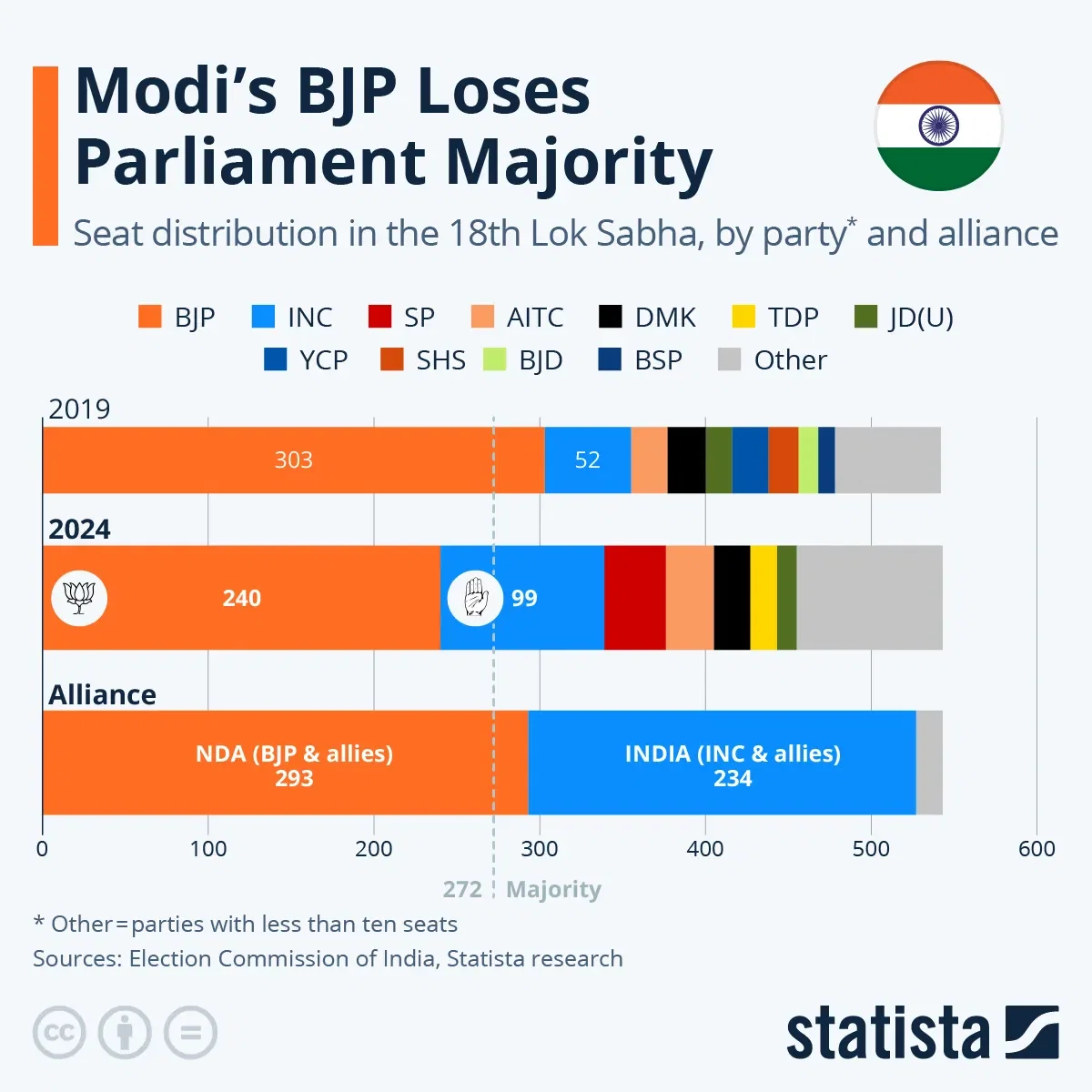Where Data Tells the Story
© Voronoi 2025. All rights reserved.

Despite exit polls and projections suggesting otherwise, Prime Minister Narendra Modi and his Bharatiya Janata Party (BJP) took a considerable hit at the election for the 18th Lok Sabha, India's lower house voted on by the country's citizens. Compared to 2019, the BJP lost 63 seats and was 32 seats shy of the 272-seat majority. For the first time since 2014, Modi will have to rely on other parties to secure a BJP-led government. However, if alliance allegiance holds, a coalition led by Modi's party is bound to stay in power for five more years.
As our chart based on data from the Election Commission of India shows, Modi's National Democratic Alliance (NDA) comprised of a variety of conservative and nationalist parties won a combined 293 seats in this year's election. Its rival, the Indian National Developmental Inclusive Alliance (INDIA), scored 234 seats. INDIA is led by the center-left Indian National Congress, which won 99 seats and whose tally was up 47 seats compared to 2019. Until the official formation of a new government, Modi has resigned as Prime Minister and will reportedly continue as a "caretaker".
As of the time of writing, no official coalition talks have started, even though it is likely that both the BJP and INDIA will try to secure political parties not necessarily completely aligned with their views as kingmakers. Candidates include Janata Dal (United), which won 12 seats and is part of the NDA but has switched allegiance many times in the past, or the Telugu Desam Party, which can be seen as economically liberal and politically nationalist and regionalist and has won 16 seats in the election.
The election for the 18th Lok Sabha is said to be the largest election ever worldwide. It took place over 44 days and brought out 642 million Indians to the polls, 312 million of which were women, according to Chief Election Commissioner Rajiv Kumar cited in The Hindu. Overall, 969 million citizens were registered to vote, creating a turnout of roughly 66 percent.